Body of evidence
Human remains give Sunny and Jessica a new investigation in TV’s Unforgotten ‘I’ve found peace despite heart condition’

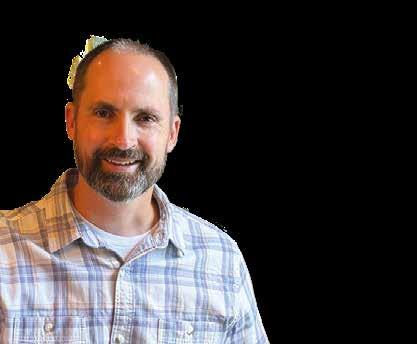

Human remains give Sunny and Jessica a new investigation in TV’s Unforgotten ‘I’ve found peace despite heart condition’


The Salvation Army is a Christian church and registered charity seeking to share the good news of Jesus and nurture committed followers of him. We also serve people without discrimination, care for creation and seek justice and reconciliation. We offer practical support and services in more than 700 centres throughout the UK. Go to salvationarmy.org.uk/find-a-church to find your nearest centre.
The Salvation Army first published a newspaper called the War Cry in London in December 1879, and we have continued to appear every week since then. Our name refers to our battle for people’s hearts and souls as we promote the positive impact of the Christian faith and The Salvation Army’s fight for greater social justice.
Editor: Andrew Stone, Major
Deputy Editor: Philip Halcrow
Staff Writer: Emily Bright
Staff Writer: Claire Brine
Staff Writer: Ewan Hall
Editorial Assistant: Linda McTurk
Graphic Designer: Mark Knight
Graphic Designer: Natalie Adkins
Email: warcry@salvationarmy.org.uk
The Salvation Army
United Kingdom and Ireland Territory 1 Champion Park London SE5 8FJ
Tel: 0845 634 0101
Subscriptions: 01933 445445 (option 1, option 1) or email: subscriptions@satcol.org
Founders: William and Catherine Booth
International leaders: General Lyndon Buckingham and Commissioner Bronwyn Buckingham
Territorial leaders: Commissioners Jenine and Paul Main
Editor-in-Chief: Major Julian Watchorn


A dramatic crime wave has hit TV and streaming platforms. Whether it’s the cosy feel of clerics solving mysteries or the gritty storylines of inner-city murders investigated by detectives battling their own demons, viewers can’t seem to get enough of whodunnits. In this week’s War Cry we preview the new series of ITV1 police drama Unforgotten, where Sanjeev Bhaskar and Sinéad Keenan have more cases to solve.
Perhaps the popularity of these crime dramas is explained by the satisfaction that viewers gain from seeing wrongs put right and the guilty brought to justice. Often the shows’ wrong’uns are bad to the core and have deliberately chosen to follow a life of crime.
However, according to people who work with offenders, the reality is often far more complex. After becoming a prison chaplain, the Rev Tracy Sickel quickly realised that various factors played a part in women becoming inmates.
‘I sat down with women in their induction interviews on their first day in prison,’ she tells us, ‘and it was the same things I was hearing continually: lack of self-esteem, abusive relationships, trauma, unforgiveness and addictions. Often they were victims themselves.’
While Tracy never dismissed the implications of the women’s crimes, some years ago she grew disheartened at seeing women returning to prison after their release. So she established a Christian charity, Imago Dei, to support them once they had completed their sentence.
As well as offering practical help, Tracy wants to show the women how a relationship with God can help them.
‘We work with people of all faiths and none in prisons,’ she says. ‘We build relationships, placing value on the women and helping them see themselves as the Lord sees them... We then allow the Lord to step in and do what only he can do – transform lives.’
God’s offer to transform lives is for us all, no matter who we are or what we have done. If we allow him space in our heart, we’ll detect changes in our character that we couldn’t have possibly imagined.
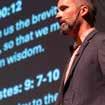





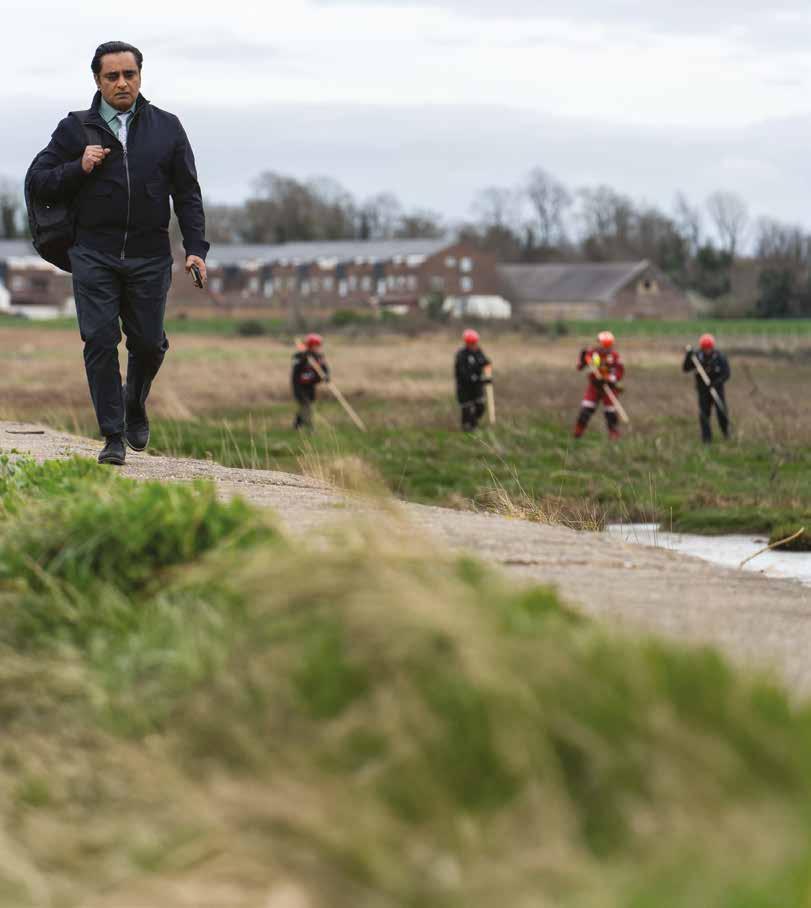
TV preview: Unforgotten Sundays and Mondays ITV1 and ITVX
By Claire Brine
remains are found at Whitney Marsh, east London. Early analysis of the bones reveals a sinister truth: not only are the remains relatively recent, but the victim’s body was dismembered before being scattered. It’s a gruesome case for the team at Bishop Street CID – but it’s one they are determined to solve, in ITV1’s returning crime drama Unforgotten As they stand overlooking the marshland, DI Sunil ‘Sunny’ Khan (Sanjeev Bhaskar) and his colleague DCI Jessica James (Sinéad Keenan) raise questions about the case: As the remains were found near a car park, did whoever dispose of the body use
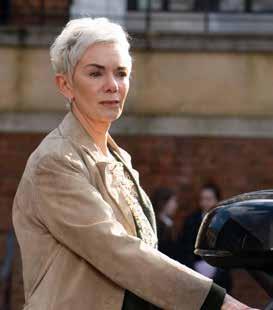
a vehicle? Will any more bones be uncovered? Who is the victim?
Meanwhile, viewers are introduced to four other characters – each of them intriguing, yet seemingly unconnected. Living in towns and cities all over the UK, these individuals are linked to the crime scene – though it’s unclear how. But one thing they have in common is their harbouring of secrets.
These people are intricately connected by their pasts. And it won’t be long before Sunny and Jess start viewing them with suspicion.
One individual coming under the spotlight is Juliet (Victoria Hamilton), a university lecturer who’s going through a bad time. Not only has her daughter been suspended from school for attacking another pupil, but Juliet herself has had a complaint lodged against her by a student.
Juliet argues that her action which caused offence has been taken out of context – but to prevent the complaint from escalating further, she is asked to apologise for her behaviour and to attend a microaggression course. She’s less than keen.
Reflecting on the problems facing her character, Victoria points out that the stories in Unforgotten explore ‘the time that we are in socially at the moment’ where, she says, there’s a ‘growing fear of speaking out, sharing
opinions or even asking questions’.
She explains: ‘The space for open discussion seems to be shrinking, replaced by an environment where asking questions feels risky, and that’s troubling. Healthy debate is crucial to genuinely learn from one another.’
She makes a good point. It may feel scary to speak up for fear of saying something wrong, but asking questions about the world we live in is important –and can prove enlightening. Discussing a complex topic with others is often how we gain a deeper understanding of it.
One subject that has attracted much debate across the centuries is faith. People curious about Christianity often want to know: Who is God? What does he want from us?
When God’s Son, Jesus, lived on Earth he welcomed such questions. And he invited all who were seeking answers to follow him. To those wanting to grow closer to God, he explained: ‘I am the way and the truth and the life’ (John 14:6 New International Version).
Today, when we analyse Jesus’ words and actions, we find evidence of the love of a heavenly Father, who is willing to forgive our wrongdoing. We discover that God wants us to extend the same kind of love to those around us.
And if we ask him to transform our character, he’ll give us hope, joy and a sense of peace – no question.
Sarah Olowofoyeku gives her take on a story that has caught the attention of War Cry reporters
Browsing Netflix to see what was coming soon to the platform, I was intrigued by the number of films and series that were about deception. Comedy film Kinda Pregnant stars Amy Schumer as a woman who starts wearing a fake belly after becoming jealous of her best friend’s pregnancy. The series Apple Cider Vinegar tells the story of a social media influencer who pretended to suffer from cancer and faked her recovery.
With the third series of The Traitors recently ending over on BBC1 as well, I can’t help but wonder what the appeal of deception says about us.
We don’t have to win God’s approval
BBC News reporter Jon Kelly wondered the same thing, noting that – even before the final – this latest series of The Traitors had been watched by more than 10 million viewers. He asked whether the show’s popularity told us ‘something fundamental about the contemporary British psyche’.
He cited some studies which show that there has been a decline in honesty across the UK. But in conclusion he said: ‘While it’s tempting to look at what The Traitors phenomenon tells us about the state of contemporary society, there’s another possible explanation – that it speaks to an eternal truth about humans’ disposition to dishonesty down the ages.’
I couldn’t agree more. It’s why centuries ago God had to give people instructions on how to live right, one of which was: ‘Do not lie.’ Lying is human nature.
A proverb in the Bible says: ‘The Lord detests lying lips, but he delights in those who tell the truth’ (Proverbs 12:22 New Living Translation). If God hates lying, and all humans are naturally liars, where does that leave us?
On our own, it leaves us in a pretty bad place. But God, knowing the nature of humans, had a plan. We don’t have to win his approval with our honesty and other good behaviour. All we have to do is to put our trust in Jesus, whose goodness will then become ours and will make a difference in our lives.
It’s a tricky concept to get our heads round, but one that has had an impact on hundreds of millions of people around the world. That’s the honest truth.

A coalition of groups – including Christian charities – launched a campaign outside the Treasury, calling on the government to champion debt cancellation for lower-income countries.
The campaign has been launched to coincide with 2025, which the Roman Catholic Church is observing as a ‘jubilee year’ – a year to be marked by a special emphasis on forgiveness and reconciliation.
The groups behind the campaign – among them, Church-based organisations Christian Aid and Cafod – say that high debt servicing costs are preventing countries from spending money on public services such as education and health, as well as on efforts to limit the effects of climate change.
According to the coalition, 32 African countries spend more on paying external debts than they do on healthcare.
The campaign is urging the government to ensure that banks, hedge funds and oil traders participate in debt cancellation processes.



A priest who became a contestant on The Traitors has spoken about her experience in the castle.
In an interview featured in Premier Christianity magazine, the Rev Lisa Coupland from Cornwall explained that, by taking part in the BBC1 psychological reality competition, she hoped to ‘show that priests are human beings’.
She said: ‘We make mistakes like everybody else. But also I wanted to show that priests are in touch with reality… We understand what people have gone through in their lives. So I don’t think it was necessarily representing Christianity or God as such, but just that priests are there and available for everybody, not just people who go to church.’
Lisa also recalled how her faith helped her to navigate the intensity of the show.
‘I’d pray about the things that had happened,’ she said, ‘ask for God’s guidance… I would pray in the castle when we were having lunch. I’m never alone with God.’

Gordon Brown visited a breakfast club run by The Salvation Army in his home town of Kirkcaldy.
The club provides guests with a full breakfast or filled roll, along with tea and coffee. It also provides a space where people can have a chat and be signposted to support services.
The former prime minister met visitors, volunteers and staff in his capacity as a founder and patron of the Warm Welcome Campaign, which encourages the creation of heated and sociable community spaces to combat the cost of living crisis.
He said: ‘I have shared the warmest of welcomes at my local Salvation Army Warm Space in Kirkcaldy, where, like all the 5,000 Warm Welcome Spaces across the UK, good-hearted neighbours come together to brighten each other’s days. These spaces are powered by human kindness, companionship and, of course, a good cup of tea or coffee.’
Captain Andrew Manley, leader of The Salvation Army in Kirkcaldy, commented: ‘At The Salvation Army, we are part of the communities we serve, and bringing people together to share food, stories and faith helps deepen connections.’
nJane Austen is being celebrated at Winchester Cathedral with a series of events marking the 250th anniversary of her birth.
The author of Pride and Prejudice, Sense and Sensibility and Emma – who spent her last days in the city and is buried in the cathedral – is due to be commemorated at a special service of music, readings and prayers in October. During the same month, a statue of her will be unveiled in the cathedral grounds.
The year of celebrations will also include a talk on the author’s spirituality, as part of the Church Times Festival of Faith and Literature in the city, and from May to September the cathedral will be leading Jane Austenthemed guided tours.
To mark Heart Month, which raises awareness of various cardiovascular conditions, JIM KAVENEY discusses the difficulties of living with an irregular heartbeat and why it’s important to stay positive in the face of health challenges
Interview by Claire Brine
Jim Kaveney thought he was dying. Just days before Christmas 2018, he was sitting on the sofa, watching a film with his two sons, when his heart started beating rapidly.
‘It rose to about 240 beats per minute, but there was nothing I could do to stop it,’ he recalls, speaking to me from his home in New Hampshire. ‘I thought: “This is it. I’m going down.” I tried to call out to my wife, but then I blacked out.’
Six years earlier, Jim had been diagnosed with paroxysmal atrial fibrillation, an irregular – and very often rapid – heart rhythm. Some days his ‘afib’ condition would cause him no problems, enabling him to crack on with the day ahead. But there were other days when his out-of-control heart rate would floor him – literally.
‘I never knew when an event like that would happen, so it was quite scary,’ he explains. ‘There were days when I’d be away from home for work and I’d call my wife, saying: “I’m having an event right now. I can’t get up from my chair. What should I do?”
‘One time, after a meeting with
clients, I was in the emergency room for 10 hours, waiting for my heart rate to come down. Being an afib patient presented limitations – but I knew that I needed to persist somehow.’
As well as affecting Jim’s work as the owner of a life sciences learning and development company, his heart arrhythmia affected family life.
‘At the time of my diagnosis, I couldn’t play with my kids or run after a ball,’ he says. ‘I was always so tired that I’d fall asleep as soon as I got home from work. I was disappointed that I wasn’t the kind of dad I wanted to be.’
In the months leading up to Christmas 2018, Jim was fitted with a pacemaker as doctors discovered that he had tachy-brady syndrome.
‘The “tachy” was to do with the elevated heart rate, and the “brady” was about the pauses,’ he explains. ‘On average, my heart was pausing about 60 times a month, for six seconds at a time. That’s why I would fall over or pass out. That’s why I needed the pacemaker.
‘But while the pacemaker stopped
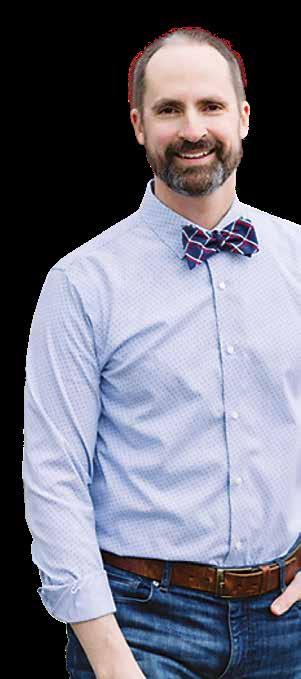


my heart from pausing, it didn’t stop the elevated heart rate. And the event I had just before that Christmas turned out to be more aggressive than any other I’d had before.’
Amid the unpredictability of his condition – and the fact that he had come close to death – Jim found strength in his Christian faith. His relationship with God began in childhood, when it gave him comfort during periods of severe anxiety.
‘Today, my faith in God brings security and peace,’ he says. ‘I know that God wants what’s best for me. I know that there are going to be challenges ahead, and I’ve been through pain, but I think there’s a purpose to it.’
The choice to ‘transform pain into purpose’ is a subject Jim explores in his book, Unlimited Heart. He hopes it will encourage people to find strength and resilience when they are facing their own
At
speaking events, Jim shares his story, connecting his experiences as an atrial fibrillation patient with his Christian faith
health challenges.
‘It’s partly a memoir, but it’s also about the battle we have between the heart and the mind,’ he explains. ‘I think that if you align the beauty and strength of your mind with your heart, then you really can live an unlimited life, despite the pain you’re facing.
If a person has faith in God, there’s nothing to fear
‘I’m not asking people to be toxically positive about their experiences, because that would be dismissive. But it’s about saying, “yeah, this sucks and it’s horrible” and then allowing yourself to come out the other side of that. It’s about repositioning how you look at things, asking yourself: “If tomorrow’s not coming, what am I going to do today to make my life, or the lives of those around me, better?”
‘And, for me, I also have the belief that if a person truly has faith in God, then there’s nothing to fear. We can say: “OK. I can do this.”’
After undergoing a cardiac ablation procedure in 2019, Jim hasn’t suffered any more traumatic cardiac events caused by heart arrhythmia. Today he is the founder of Unlimited Heart Health and Wellness, a collaborative organisation of healthcare professionals – and he hopes to spend the rest of his life supporting afib patients across the world.
‘That’s my purpose now,’ he says. ‘I’ve been through a fair amount of difficulty in life, and I want to use my experiences as a catalyst for change, helping people with atrial fibrillation to find ways in which they can live with it.’ l Unlimited Heart: How To Transform Your Pain into Purpose is published by Ideapress Publishing
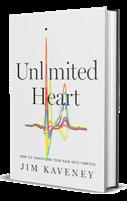

The Rev TRACY SICKEL explains how rehabilitation work can be a remedy to reoffending and how her charity, Imago Dei, helps women to face life after prison and probation

‘After I became a chaplain at Holloway in 2010,’ says the Rev Tracy Sickel, ‘I was forever seeing women coming out of prison on a Friday, and going back in on a Monday. They walked out with no hope, and they’d say: “See you on Monday, Miss!” Sure enough, they would be back.
‘There’s no point in locking the women up for 23 hours a day and expecting them to leave prison different – they don’t. They come out homeless, more traumatised, disillusioned and often more criminalised.
‘After five years of seeing the revolving door of women coming in and out, I felt the Lord saying to me: “Dig into those issues that got women involved in criminal activity in the first place.”’
Tracy explored how to set up her own charity, hoping to give the women a fresh start, and in 2016 established Imago Dei.
At the heart of the charity is a Christian belief: ‘Imago Dei’ is a Latin phrase and theological term meaning ‘in the image of God’. The charity believes that every life is precious – regardless of what people may have done in the past – because God made humankind in his likeness.
Tracy’s direct connection with the prison system helped her establish Imago Dei’s work, which runs a variety of projects to help women going through the criminal justice system.
Its prison ministry operates through multifaith chaplaincies in HMP Downview in Sutton, HMP East Sutton Park near Maidstone and HMP Send in Woking. It also has connections with HMP Bronzefield in Ashford, Surrey.
‘We work with people of all faiths and none in prisons,’ says Tracy. ‘We build relationships, placing value on the women and helping them see themselves as the Lord sees them, so that when they leave prison they can step into the plans and purposes that God has got for them. We then allow the Lord to step in and do what only he can do – transform lives.’
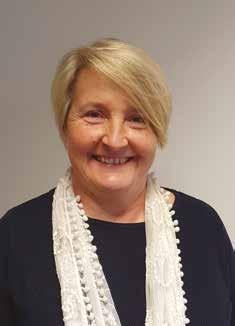
Tracy Sickel
She believes that, among the women, there’s an appetite for change.
‘In one of the prisons we’ve run a course that explains Christianity, and there’s so much hunger at the moment from people who maybe have tried everything else – relationships, drugs, sex and alcohol. But we can say: “Have you tried faith in Jesus?”’
The women don’t have to be defined by the past
Imago Dei doesn’t shy away from discussing fundamental issues. Its prison courses address topics such as forgiveness, loss, parenting and victim awareness.
‘One of the courses we run is called Flourish,’ explains Tracy. ‘It’s a sixweek course that looks at identity and
wholeness – who God created these women to be – and things like managing their emotions, healthy relationships and boundaries.
‘We also look at their purpose, potential and what they want to spend the rest of their life doing. It’s all about helping them to believe in who they are and raising their self-esteem and self-confidence. We invest in them.
‘I love it when women grasp the concept of being happy in their own skin and believe in themselves. They realise that they don’t have to be defined by what’s happened in the past – they are free to be the people that God created them to be.’
Imago Dei also mentors young women in prison and runs #SheMatters, a charity shop in Tunbridge Wells, which provides work experience to prisoners on day release.
‘Often the biggest barriers that women have on release from prison are the lack of accommodation and the difficulty of finding employment,’ says Tracy. ‘We can give them a reference at the end of their work experience, which they can take to future employers.
‘But it’s also about having community volunteers that speak into the women’s lives and equip them to be ready for release.’
Imago Dei’s support continues long after the women walk out of a prison’s gates. It offers further mentoring to women released into the community and teaches courses on independent living and managing money. The charity also accompanies women to appointments and signposts them to employment and training opportunities.
Another essential part of an ex-offender’s long-term rehabilitation is having a place to call home, which is the inspiration for the charity’s upcoming
Turn to page 10 f
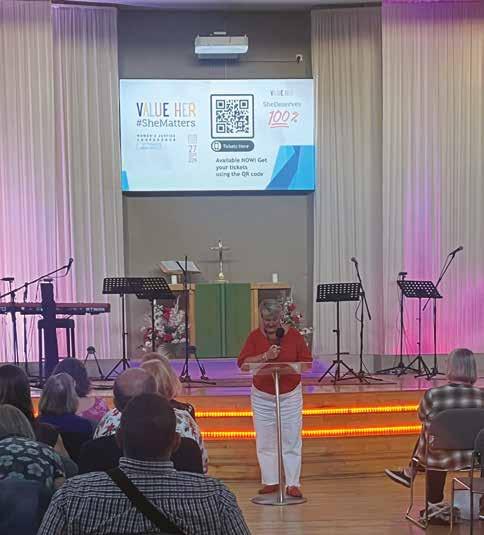
From page 9
project, Grace House.
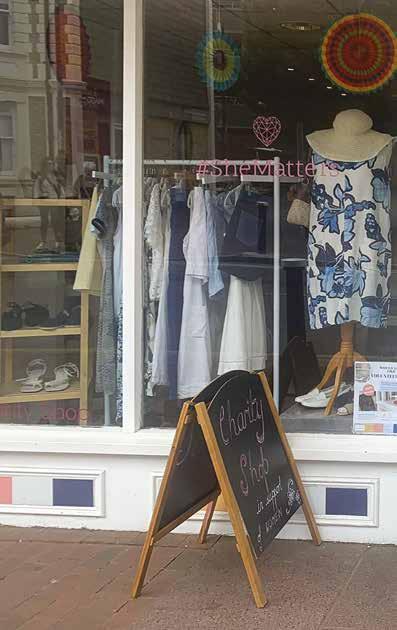
‘When women come out of prison, they get very little support,’ says Tracy. ‘Often they end up with their £76 discharge grant, and then they’re on the streets.
‘If they’re fortunate, they might get a tent or a sleeping bag, but they end up on the streets of London. So we want to help women get accommodation. We’ve just secured a property in Maidstone that will be housing six women.
‘As well as providing accommodation, Grace House will enable us to help women with basic life skills. A high percentage of people in prison have come through a care system that maybe hasn’t taught them how to use a washing machine, budget or cook. We can give them those basic skills.’
Working in liaison with probation services, Grace House will offer a place for residents to stay for any length
The

of time from four months to two years.
But in order for the women to flourish, says Tracy, wider society too needs to be receptive to rehabilitating them.
Consequently, an important dimension of Imago Dei’s work is challenging people’s misconceptions by revealing the context behind women’s incarceration.
The charity’s website cites a briefing from the Prison Reform Trust, which said that 53 per cent of women in prison reported having experienced emotional, physical or sexual abuse as a child; 46 per cent reported having suffered from domestic abuse; and 31 per cent were taken into care as a child.
These are stories with which Tracy is all too familiar.
‘As a chaplain, I sat down with women in their induction interviews on their first day in prison, and it was the same things I was hearing continually: lack of selfesteem, abusive relationships, trauma, unforgiveness and addictions. Often they were victims themselves.’
Tracy acknowledges that it’s important

not to dismiss the implications of the crimes that the women have committed but she wonders if – once they’ve served their time – it would be far more beneficial to society if they were rehabilitated.
‘We’re not saying that they shouldn’t be in prison or that what they did doesn’t count,’ she says. ‘It does. There are always consequences. But those women coming to prison and being separated from their families is punishment enough. We need to rehabilitate them and help them to move forward, to become all that they can be.’
Central to all Imago Dei’s work is its belief in the worth of the women it helps.
‘Everybody should be treated with dignity and given the opportunity and the help to turn their lives around,’ says Tracy. ‘That’s what we’re about as a charity. Everyone has value, purpose and worth. Jesus died for all of us. God is a God of transformation and redemption.’
Ten years on since Tracy first explored the possibility of setting up her charity, she is seeing the transformation that God


is bringing into people’s lives.
She says: ‘We see people in the prisons – and in the community – who have turned their lives around and found hope and a new perspective.’ She gives one particularly striking example.
I’m doing it in
‘One lady who was in the prison system did our courses, and then contacted us and asked us to mentor her on release.
‘She had become a Christian in prison, and she has now started two charities and is mentoring young people in London. Seeing how God has worked in her life has been incredible. She is now able to share her story to help the next generation.’
In addition to her role as CEO, Tracy continues to serve as a prison chaplain. In doing so, she takes encouragement from her faith.
‘It can be a challenge going into prison,’ she says. ‘As a chaplain, you never know what you’re going to be faced with when you go through the doors – whether it’s breaking the news of a grandma’s death to somebody, or of someone’s child being adopted.
‘But when I go into those situations, I’m doing it in God’s strength, not my own. I’m encouraged because I know that he is a good God.
‘Knowing that people are praying for us as we go into those dark situations is key too. Prayers are powerful and effective.’
Tracy sees God as being with her in the person of Jesus, who is ‘a friend that walks alongside me in the corridors of the prison, only ever a prayer away’.
She says: ‘As I go in and bring bad news to somebody or bring hope to somebody, I can introduce my friend to them. Jesus is working in the darkness and bringing light and hope. Whether people acknowledge him or not, I know he’s there with me.’
Your prayers are requested for Benjamin, who is in prison.
The War Cry invites readers to send in requests for prayer, including the first names of individuals and details of their circumstances, for publication. Send your Prayerlink requests to warcry@ salvationarmy.org.uk or to War Cry, 1 Champion Park, London SE5 8FJ. Mark your correspondence ‘Confidential’.
There is no set formula to becoming a Christian, but many people have found saying this prayer to be a helpful first step to a relationship with God
Nigel Bovey gives chapter and verse on each book of the Scriptures
Meaning ‘second law’, Deuteronomy is the fifth and last book in the law section – the Torah, as it is known in Hebrew – of the Old Testament. Much of the book is presented as the reflections of an old man, Moses. It is a mix of an eve-ofbattle speech, prematch pep talk and national heritage lecture.
Under Moses’ leadership, the Hebrews escaped Egyptian slavery. Heading towards Canaan, they journeyed for 40 days around the Sinai Peninsula. They rebelled against God. Consequently, he condemned the generation that left Egypt to spend 40 years in the wilderness. They would not live to see Canaan. Under the leadership of Joshua, a new generation would conquer and settle in the ‘promised land’.
With the momentous fate and future of the people of Israel at stake, Moses recalls their history.
Lord Jesus Christ,
I am truly sorry for the things I have done wrong in my life. Please forgive me. I now turn from everything that I know is wrong.
Thank you that you died on the cross for me so that I could be forgiven and set free.
Thank you that you offer me forgiveness and the gift of your Holy Spirit.
Please come into my life by your Holy Spirit to be with me for ever.
Thank you, Lord Jesus.
Amen

He tells them how God had promised Canaan to their forefathers Abraham, Isaac and Jacob (1:8) and how he had sent spies to reconnoitre it (1:19–25). He recounts battles – defeats and victories (chapters 1 to 3). He reminds them of their special relationship with God, as set out in the Ten Commandments (chapter 5), and emphasises their need to remain faithful to God (chapters 4 and 7).
He outlines many of the required religious observances (chapters 12 to 16), the administration of justice, the appointment of a king and the establishment of cities of refuge for those who accidentally kill someone (chapters 17 to 19).

He lays down civil laws on military service, foreign wives, marriage, divorce, relationships and the benefits of keeping faith with God (chapters 20 to 28).
Speaking from the heart, he urges this second generation to keep the covenant with God (chapter 29). He reminds them of the benefits of repentance, urging them to learn, as he did, that life is nothing without God (chapter 30).
He pleads with them to ‘choose life, so that you and your children may live’ (30:19).
Having prepared his people for a new life, at the end of the book Moses dies.

To receive basic reading about Christianity and information about The Salvation Army, complete this coupon and send it to
email your name and postal address


1 2 3 4 5 6
Who is the author of the bestselling novel Killing Time?
Who plays Dr Nikki Alexander in the BBC1 crime drama Silent Witness?
Who took over from Zoe Ball as host of Radio 2’s breakfast show last month?
Which band had a No 1 hit album in 2021 with The Ultra Vivid Lament?
What is the maximum number of players that a netball team can have on court at any one time?
Easter Island is a special territory of which South American country?

Help is at hand for couples if the going get tough
Feature
by Ewan Hall
‘You may kiss the…’ And so begins the marital adventure for the happy couple as they celebrate their love together. Whether there are hundreds in attendance or just a handful of friends or family, a wedding is a big day when everyone present hopes for a bright future for the newly-weds.
The reality is, though, that not every married couple find living happily ever after easy. That is why, from 7 February to 14 February, media, businesses and faith organisations are marking Marriage Week. Offering events, activities and online resources of ideas for celebrations, the week aims to help couples pursue a lasting love within their relationship long after they say, ‘I do’.
The wedding day itself is usually a big occasion not only for the couple, but also for other people – family, friends and even the person who officiates at the ceremony.
Major Mark Sawyer, a minister in The Salvation Army, has conducted 65 weddings, and he explains that every ceremony has been a significant occasion for him.
‘It’s always a privilege to lead a wedding,’ he says. ‘I get nervous because there seems to be such high expectations for the day, and then the ceremony is being videoed and photographed.’
But Mark acknowledges that, once the big day and all the celebrations are over, life won’t always be a piece of cake for the couple.
‘A couple’s intention at a wedding is to be with each other for ever,’ he says, ‘but that doesn’t mean it will be easy, and there may be times when they need help along the way.’
Mark believes that some of the best support in those difficult times can come from the Christian faith.
‘To have a solid foundation in the love of God does help and will help when the tough times come,’ he says.
What Mark says is true not only for married couples. Whoever we are and whatever our relationship status, God offers his love to everyone.
If we accept his offer of a life with him, we can experience his love – for richer, for poorer, in sickness and in health, and way beyond our lives here and now.

ACROSS
1. Award (5)
5. Singing group (5)
8. Chuckle (5)
9. African lake (5)
10. Make use of (5)
11. Powerful person (5)
12. Facile (4)
15. Agree (6)
17. Pursue (5)
18. Church office (6)
20. Metal (4)
25. Academy award (5)
26. Child (5)
27. Edict (5)
28. Express jubilance (5)
29. Enthusiastic (5)
30. Sprayed (5)
1. Very small (6)
2. Curtains (6)
3. Andean animal (5)
4. Move (5)
5. Goblet (7)
6. Not transparent (6)

7. Tell (6)

13. Mimic (3)
14. Diffident (3)
15. Snake (3)
16. Pair (3)
17. Singer (7)
18. Feasible (6)




METHOD

150g white onion, peeled and quartered
2 garlic cloves
300g wild mushrooms
400g can chickpeas
150g ground polenta
Salt and ground black



Preheat the oven to 170C/Gas Mark 4. Line a baking tray with baking paper.



Whizz the onion, garlic and mushrooms in a food processor until very finely chopped. Tip into a bowl.
Drain the chickpeas, reserving the liquid. Add the chickpeas to the food processor and whizz until roughly chopped. Tip into the bowl containing the mushrooms, onion and garlic. Add the polenta and a good pinch of salt and pepper, then mix thoroughly. Add the thyme and combine.
Lay the pastry sheet on the worktop and cut in half lengthways.
Place half of the mushroom filling mixture in a strip along one side of one of the pastry sheets, keeping it as even as possible. Fold the other side of that pastry sheet over the filling and wet the edge with a little water. Press down to seal.
Repeat the same steps with the other pastry sheet. Cut into 6 even rolls, then place on the tray and score the tops with a knife. Brush the tops with the reserved chickpea water.
Bake in the oven for 30-35 minutes, until golden and risen.
For the pastry base
200g plain flour
100g baking margarine
30g icing sugar
Pinch salt
For the filling
200g raspberry jam
For the sponge
200g baking
margarine
200g caster sugar
100g ground almonds
100g self-raising flour
2 eggs
1tsp almond essence
For the topping
30g flaked almonds

Preheat the oven to 160C/Gas Mark 3. Line a 20cm x 20cm pastry cake tin with baking paper.
To make the pastry, place all the base ingredients in a food processor and mix until they start to bind together. Tip out on a floured worktop and knead gently to form a dough. Roll the pastry out and place in the tin.
Spread the filling of jam evenly over the pastry base.
To make the sponge, combine all the ingredients in a mixer at medium speed, until light and fluffy.
Pour the sponge mixture over the jam filling, ensuring an even covering. For the topping, evenly sprinkle the flaked almonds over the sponge.
Bake in the oven for 30-40 minutes, until the sponge has set and the top is golden brown. Leave to cool completely before cutting, to serve.
